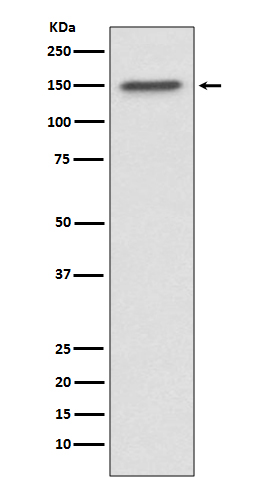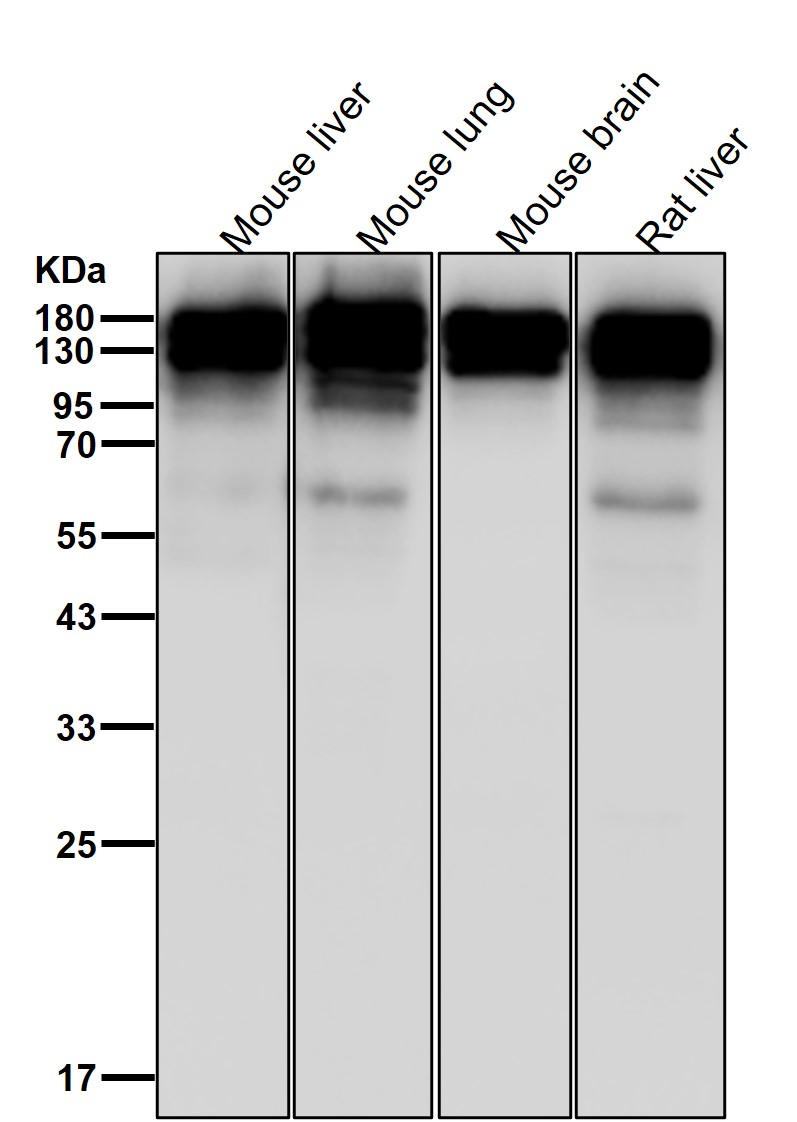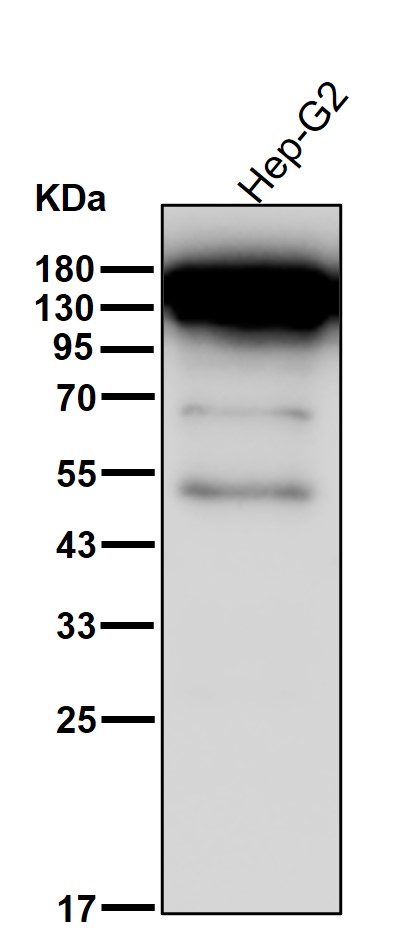


| WB | 咨询技术 | Human,Mouse,Rat |
| IF | 咨询技术 | Human,Mouse,Rat |
| IHC | IHC:1/100-1/200;IHF:1/50-1/200 | Human,Mouse,Rat |
| ICC | 1/50-1/200 | Human,Mouse,Rat |
| FCM | 咨询技术 | Human,Mouse,Rat |
| Elisa | 咨询技术 | Human,Mouse,Rat |
| Aliases | 53BP2; ASPP2; p53BP2; PPP1R13A; Tp53bp2;;TP53BP2 |
| WB Predicted band size | Calculated MW: 126 kDa ; Observed MW: 150 kDa |
| Host/Isotype | Rabbit IgG |
| Antibody Type | Primary antibody |
| Storage | Store at 4°C short term. Aliquot and store at -20°C long term. Avoid freeze/thaw cycles. |
| Species Reactivity | Human |
| Immunogen | A synthesized peptide derived from human TP53BP2 |
| Formulation | Purified antibody in PBS with 0.05% sodium azide,0.05% BSA and 50% glycerol. |
+ +
以下是关于ASPP2抗体的3篇参考文献(模拟示例,非真实文献):
1. **文献名称**:*"ASPP2 Antibody Validation in p53-Dependent Apoptosis Studies"*
**作者**:Chen L, et al.
**摘要**:研究验证了兔源ASPP2多克隆抗体的特异性,通过免疫印迹和免疫沉淀实验证实其可识别内源性ASPP2蛋白,并用于分析ASPP2在p53介导的凋亡通路中的调控作用。
2. **文献名称**:*"Development of a Monoclonal Antibody Targeting ASPP2 for Cancer Biomarker Detection"*
**作者**:Wang Y, et al.
**摘要**:报道了一种新型小鼠单克隆ASPP2抗体的开发,通过免疫组化(IHC)在乳腺癌组织中检测ASPP2表达,发现其低表达与患者预后不良相关。
3. **文献名称**:*"ASPP2 Modulates Cell Polarity via Antibody-Based Functional Assays"*
**作者**:Rodriguez S, et al.
**摘要**:利用特异性ASPP2抗体进行免疫荧光染色,揭示ASPP2通过结合Par3复合体调控细胞极性,并影响上皮细胞迁移的分子机制。
注:以上内容为示例模板,实际文献需通过PubMed/Google Scholar检索关键词“ASPP2 antibody”或“ASPP2 immunohistochemistry”获取。
The ASPP2 (Apoptosis-Stimulating Protein of p53 2) antibody is a crucial tool for studying the ASPP family of proteins, which regulate apoptosis and cellular stress responses. ASPP2. encoded by the TP53BP2 gene, is a key regulatory protein that enhances the pro-apoptotic activity of p53 by selectively promoting the transcription of apoptosis-inducing genes over cell-cycle arrest genes. It interacts with p53 through its SH3 domain and ankyrin repeats, facilitating p53’s binding to target promoters. ASPP2 also engages with other proteins, such as Bcl-2 and NF-κB, expanding its role in apoptosis, DNA repair, and cell polarity. Dysregulation of ASPP2 is linked to cancer progression, as its loss or downregulation is observed in tumors, correlating with poor prognosis and chemoresistance.
ASPP2 antibodies are widely used in research to detect ASPP2 expression via techniques like Western blotting, immunohistochemistry, and immunofluorescence. These antibodies help elucidate ASPP2’s subcellular localization, interactions, and tissue-specific expression patterns. Validated antibodies often undergo specificity testing using knockout cell lines or siRNA-mediated knockdown. Researchers utilize ASPP2 antibodies to explore its tumor-suppressive functions, roles in developmental biology, and potential therapeutic targeting. Commercial ASPP2 antibodies vary in clonality (monoclonal/polyclonal), host species (rabbit, mouse), and epitope recognition, necessitating careful selection based on experimental needs. Their application advances understanding of p53 signaling networks and cancer mechanisms.
×